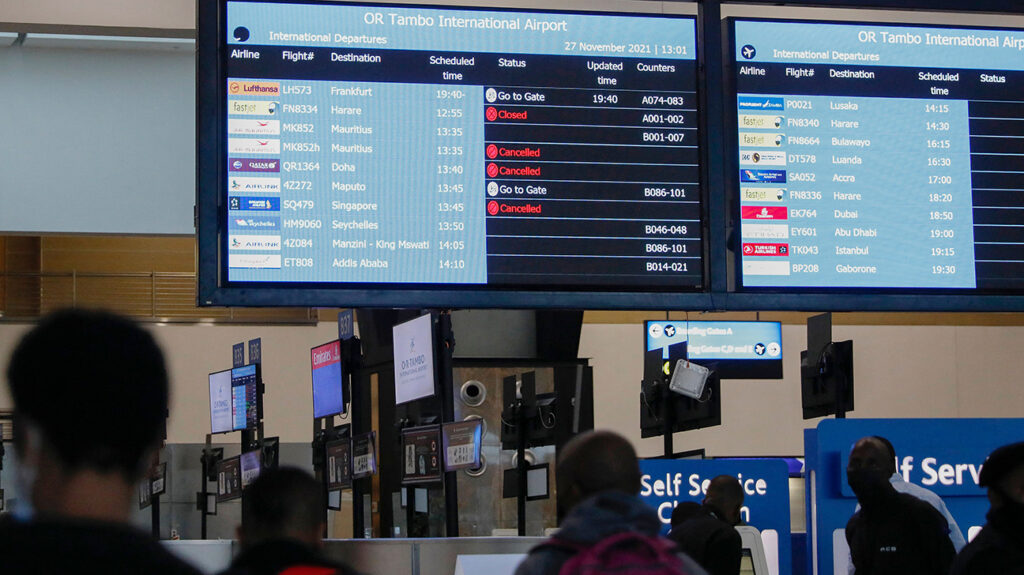Africa’s leading think-tank and research institute, African Heritage Institution (AfriHeritage) in collaboration with the Institute for Peace and Conflict Resolution (IPCR) of the Ministry of Foreign Affairs converged to deliberate on the way forward with the Nigeria’s national and human security challenges.
The plenary session, themed ‘Trends and dynamics of armed banditry: making sense of the problem,’ brought together industry captains, academicians, government representatives, and thought leaders in areas of security and peace keeping to deliberate and proffer innovative ideas for sustainable solutions to Nigeria’s incessant security challenges.
In his welcome address, Prof. Ufo Okeke-Uzodike, the Executive Director of African Heritage Institution stated that “after over six decades since independence, Nigeria is struggling to achieve basic human security needs of its people. Average Nigerians are consistently afraid of assorted security uncertainties. Nigerian parents and their children worry about personal safety at the markets, schools, churches and other places of worship. Even farmers worry about their personal safety because of reputed hoodlums or bandits as they attend to their farms or livestock.
“These challenges persist because Nigeria remains a country of culturally disparate and unintegrated people who are still finding it difficult to work together with the view to solve common problems. Sadly, effective national and human security usually require meaningful and inclusive participation and ownership by citizens. While Big Ideas Podium events convene stakeholders for effective collaboration on critical issues, it is with the view to proffer big and unbiased ideas that could help policy makers formulate impactful public policies”.
Also, the Director General of the Institute for Peace and Conflict Resolution (IPCR), Dr. Bakut Tswah Bakut, Ministry of Foreign Affairs — represented by Mr. Andy Nkemneme (Deputy Director, Internal conflict Prevention and Resolution) — emphasized the need for all to work together in harmony to achieve and maintain peace.
“The Big Ideas Podium would not have taken place at a better time than now considering the devastating impact of the conflict that is closing in on the nation’s safety spaces. Armed banditry has become one of the biggest threats to peace and security in Nigeria. The Institute for Peace and Conflict Resolution (IPCR) of the Ministry of Foreign Affairs exists to strengthen the adoption of peace and conflict resolution mechanisms in Nigeria and across Africa. The IPCR has played and will continue to play vital roles in peace and conflict resolution in Africa and we thank AfriHeritage for this impactful collaboration in entrenching peace and security in Nigeria”.
During his keynote address, Dr. Chukwumemeka B. Eze – Executive Director, African Network for Peace Building, Accra, Ghana stated categorically: “Moving forward, there is first of all the need to re-examine the existing strategies of mitigating the threat of armed banditry, identify the gaps and chart a new pathway towards sustainable peace. I want to state emphatically that armed banditry is not a problem that will be solved through the barrel of a gun. There is the need to revitalize activities that promote social inclusion and human security, which will provide prospects for transformative changes, peace and development in Nigeria”.
Dr Eze added that “We must all realise that every environment has its peculiarities. These myriads of social cleavages can only be effectively taken care of if we collectively fashion out an efficient strategy to meet them. This we believe strongly can only be actualisable through engagements like this. If you look around here we have women and men from all the six geo- political zones and who from their academia, CSO or hybrid has been a big player in the issues that confront us. I have no doubt therefore that we will be having stimulating discussions and the outcomes and conclusions would be contributory in designing and envisioning the future
we desire and deserve”.
Furthermore, the discussants reflected briefly on different dimensions of the subject matter and proffered ideas on relevant solutions for Nigeria. Anthony Odo Agbor of the Federal University, Wukari, Taraba State, highlighted the impact of armed banditry on families, livelihoods, and Human Security; Dr. Kingsley Udeh, Esq. — Special Adviser to the Governor of Enugu State on Education — outlined the impact of armed banditry on education and human capital development; and Eng. Umar Ibrahim of Kano Electricity Distribution Company explicitly highlighted the impact of armed banditry on communities, human life and socio- economic development.
Over the years, AfriHeritage has influenced transformative public policies in Nigeria by providing effective platforms like the Big Ideas Podium for objective discussions on salient issues that affect the public in Nigeria. The Institution remains deeply committed to bridging the ideas and data gaps in the formulation and implementation of transformative public policies in Nigeria and across the continent.

 News3 weeks ago
News3 weeks ago
 Business3 weeks ago
Business3 weeks ago
 Technology3 weeks ago
Technology3 weeks ago
 Investment3 weeks ago
Investment3 weeks ago
 Banking Sector3 weeks ago
Banking Sector3 weeks ago
 Banking Sector3 weeks ago
Banking Sector3 weeks ago
 Appointments3 weeks ago
Appointments3 weeks ago
 Investment3 weeks ago
Investment3 weeks ago

















